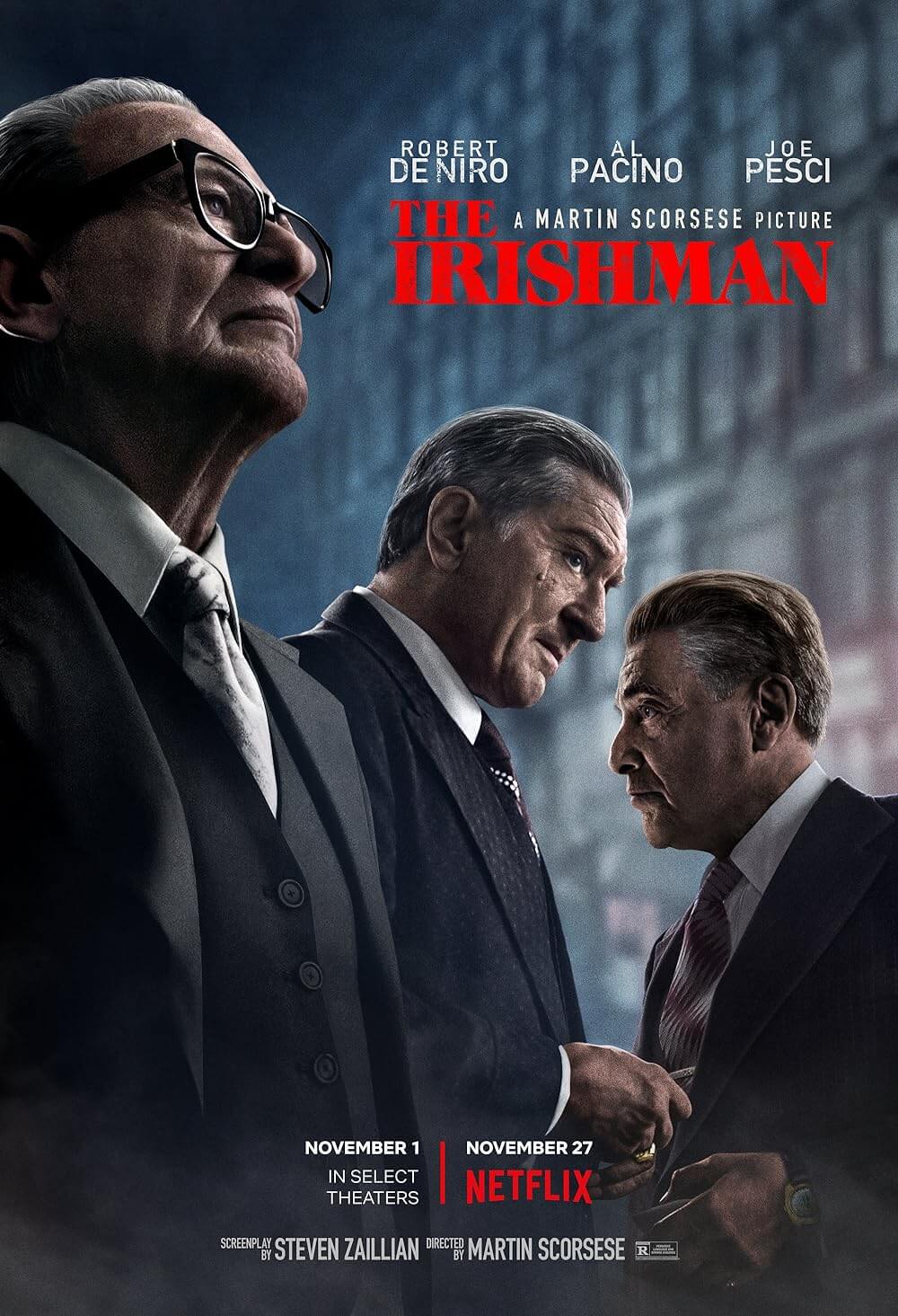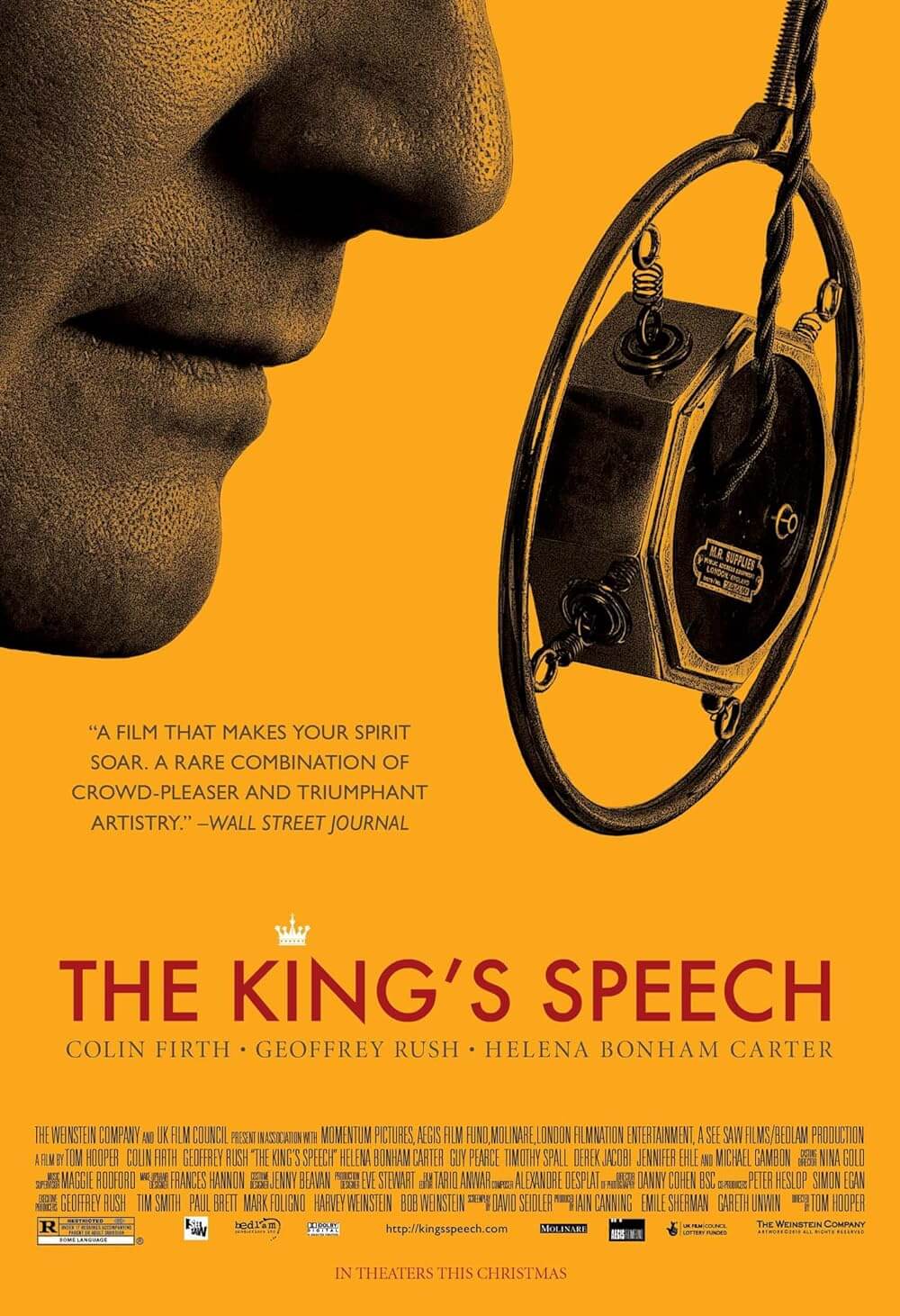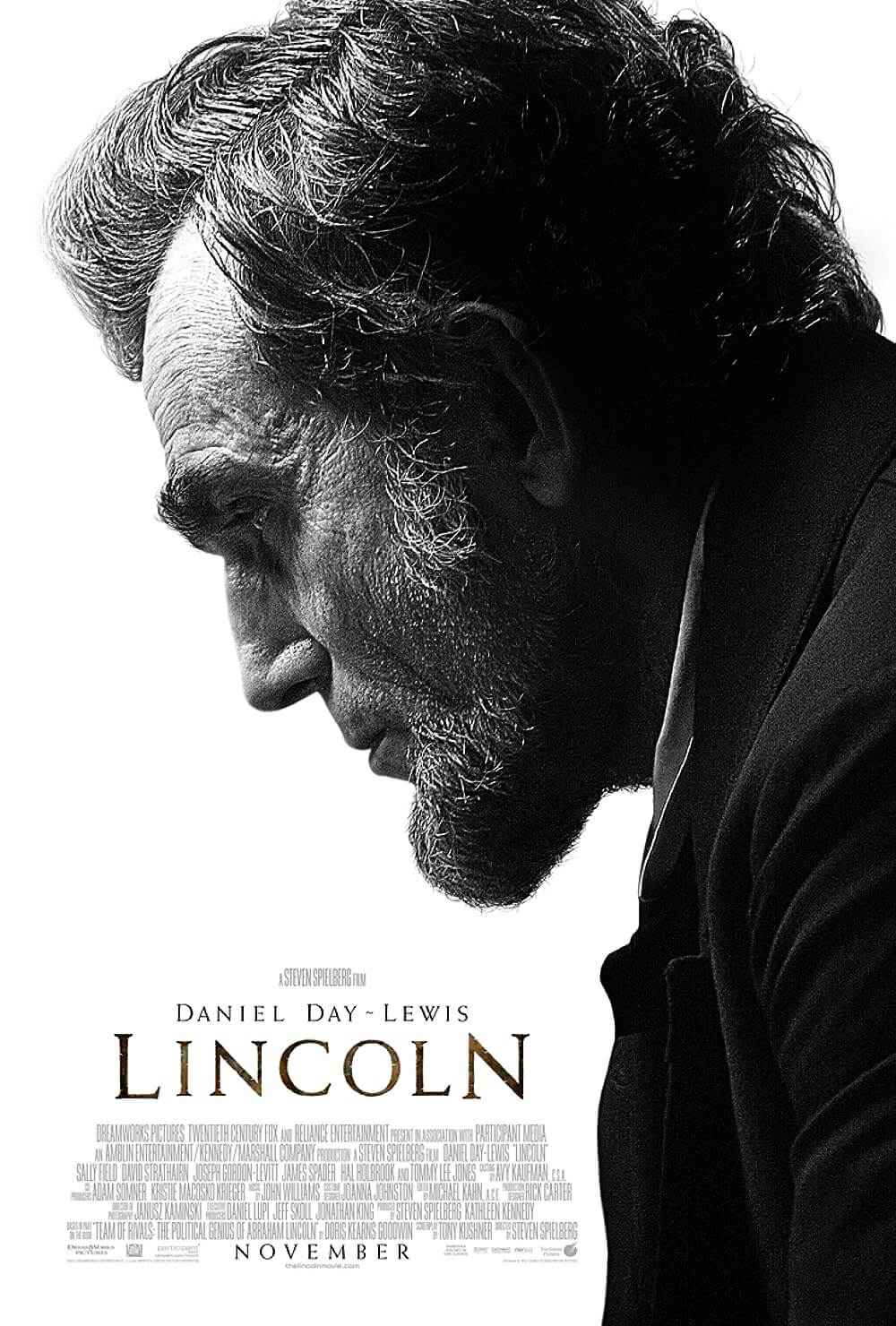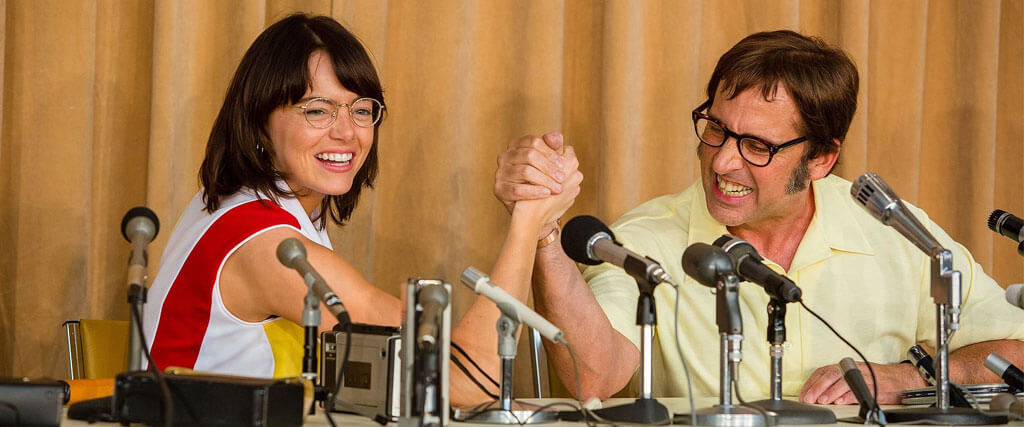
Battle of the Sexes
By Brian Eggert |
Watching Battle of the Sexes, viewers will draw inevitable comparisons between the publicity-driven 1973 tennis match and the 2016 presidential election, as many critics already have. The film details the fervor surrounding male champ Bobby Riggs, and his chauvinist-and-proud campaign to goad the women’s champ Billie Jean King into a tournament that, from his perspective, would prove once and for all that female tennis players were inferior to male players. Performed at the Houston Astrodome for a $100,000 prize (with the sexist wink of Sugar Daddy candy bars as a major sponsor), the outcome represented a victory for gender equality and women’s rights. The 2016 election also pitted a misogynist blowhard against a (decidedly less heroic) female opponent, but the fallout signified, among countless other consequences, that gender inequality and discrimination is very much alive in American culture. But perhaps linking these two competitions ignores the other examples of gender inequality in our society. Battle of the Sexes is less a mirror image of the 2016 presidential election—however tempting, and apt, such comparisons may be—than a synecdoche of how little gender politics in America have changed in the last four decades.
The film is directed by Valerie Faris and Jonathan Dayton, who made Little Miss Sunshine (2006) and Ruby Sparks (2012), from a screenplay by Simon Beaufoy, the Oscar-winning writer of Slumdog Millionaire (2008). Steve Carrell reteams with the directors to play Riggs, while last year’s winner of the Academy Award for Best Actress, Emma Stone, appears as King. By all accounts, Battle of the Sexes has been designed as a crowd-pleaser of the pseudo-indie order (it was produced for a relatively cheap $25 million and distributed by Fox Searchlight). But rather than taking the easy route and making the film all about Riggs’ outlandish publicity stunts, followed by King’s victory, the film considers the emotional consequence to the personal relationships of the players, the evident male-dominated power of the tennis circuit, and the sexism that seems evident by actual footage of the era’s celebrities (Howard Cosell, Ricardo Montalban, and Lloyd Bridges are not portrayed in a favorable light).
Riggs’s wife, Priscilla (Elisabeth Shue), sees his chauvinism as a silly game; but she’s less amused by his gambling addiction, which he seems to need to feel less emasculated by his breadwinning wife. More complicated are the romantic affiliations of King, whose supportive husband (Austin Stowell) may have always suspected King’s eventual lesbianism. When she meets hairdresser Marilyn Barnett (Andrea Riseborough) in a Los Angeles salon, something clicks. It’s impossible to reconcile her newfound feelings with her marriage, not to mention uphold her tennis game in the face of such emotional stress. She’s already fighting the Association of Tennis Professionals’ executive director, Jack Kramer (Bill Pullman), who refuses to give equal tournament prize payouts to women. Though King and her snappy business partner Gladys Heldman (Sarah Silverman) make a solid case in Kramer’s stuffy wood-and-whiskey men’s club that the women’s tournaments sell as many tickets as the men’s, Kramer refuses to budge out of sheer prejudice (“It’s biology,” he claims). And so, King starts her own Women’s Tennis Association with the sponsorship of, believe it or not, Virginia Slims cigarettes.
The first half of the film ungainly alternates between these various storylines—with King touring alongside the members of her new league, and Riggs dealing with his financial woes—gradually building to their intersection when Riggs, benefitting from the personal pressures placed on King, finally gets a call saying she’ll play him. Though the result won’t surprise anyone, the game itself is shot like a televised tennis match, with long-distance angles to ensure the CGI artists could convincingly paint Carrell and Stone’s faces onto the actual tennis players carrying out the scene. The tennis match is one of the least compelling aspects of the film, to be sure. We are more invested in the faces of Kramer and Riggs’ gambling buddies, all of whom objectify women and want to see King receive her comeuppance. It’s one of the finer joys in Battle of the Sexes, watching their disappointed expressions as Riggs loses set after set. If only the film didn’t offer so many excuses as to why Riggs lost: he took vitamins peddled by a bogus nutritionist (Fred Armisen), his son (Lewis Pullman) refused to watch him play the game, he wore a thick jacket for his sponsor that caused him to overheat, and so on.
Dayton and Faris shot on 35mm and saturated their footage in yellow hues to give the product that seventies look, but nothing else about the production design or formal approach reaches beyond the straightforward. Stone and Carrell each give strong performances. Carrell plays another eccentric who almost proves redeemable, or at least sympathetic. Stone offers a thoroughly three-dimensional performance, capturing the many faces of her inspirational character, Billy Jean King: her civility in front of the press, her uncertainty in her romantic life, her hard-won fight for gender equality, and her passion on the tennis court. Nevertheless, Battle of the Sexes does not have an urgent energy; it proceeds with an unexceptional approach and leisurely pace, reaching its conclusion in due time. Fortunately, the film never becomes a hype machine or gets caught up in the bizarre media circus around the central match. The concentration remains on the players and the emotional stakes, as well as what King’s victory represents. And while her win was a huge step forward, when the credits begin to roll, it’s impossible not to think about how far we have yet to go.
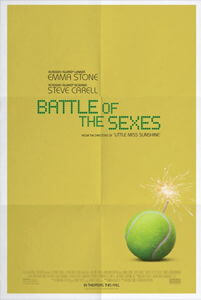
Thank You for Supporting Independent Film Criticism
If the work on DFR has added something meaningful to your love of movies, please consider supporting it.
Here are a few ways to show your support: make a one-time donation, join DFR’s Patreon for access to exclusive writing, or show your support in other ways.
Your contribution helps keep this site running independently. However you choose to support the site, please know that it’s appreciated.
Thank you for reading, and for making this work possible.
Brian Eggert | Critic, Founder
Deep Focus Review


